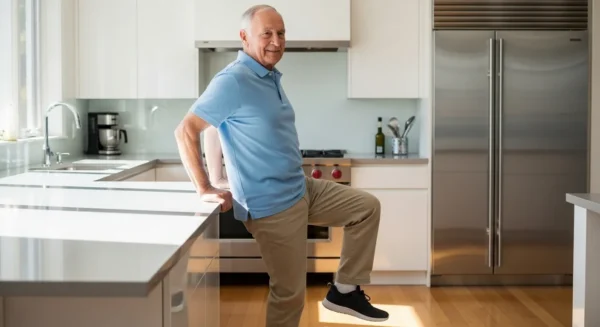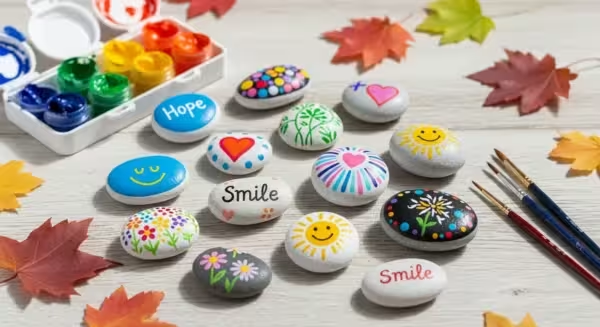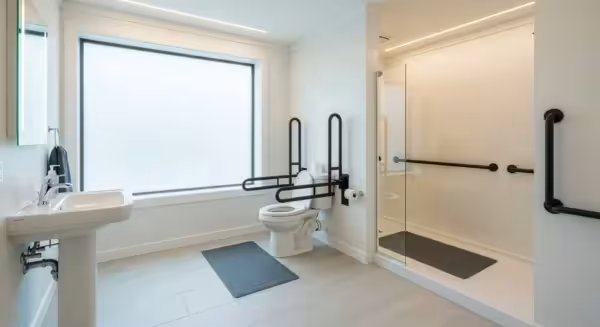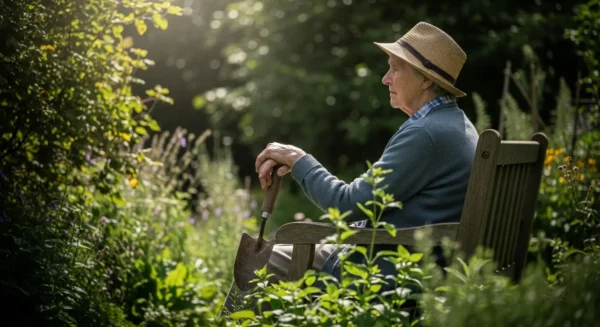
Our Top 5 Picks for Senior Companionship
Choosing a pet is a deeply personal decision. Your lifestyle, energy level, living situation, and personality all play a crucial role. What works for your neighbor might not be the right fit for you. Below, we’ve curated a list of five wonderful companion types, keeping the unique needs and desires of seniors in mind. We’ll look at their temperaments, care requirements, and the special kind of joy each one brings.
1. The Independent and Affectionate Cat
For those who appreciate a companion who is both loving and self-sufficient, a cat is often the perfect choice. They don’t require daily walks, are perfectly content in smaller living spaces like apartments or condos, and are meticulous about their own grooming. This independence makes them an excellent fit for seniors who may have mobility challenges or simply prefer a more relaxed pace of life.
Temperament: Cats have a reputation for being aloof, but that’s a broad generalization. Breeds like the Ragdoll are famous for their docile, puppy-like nature, often going limp with affection in your arms. A standard Domestic Shorthair, found in any local shelter, can be just as loving. The key is finding a cat with a personality that matches yours. Many shelters have “cat-testing” rooms where you can sit and interact with them to see whose spirit connects with your own.
Care and Considerations: The primary daily task is feeding and ensuring fresh water, along with scooping the litter box. While the litter box is a drawback for some, modern innovations like automatic-cleaning boxes or long-lasting litter can make this chore much more manageable. Vet visits are typically annual for healthy adult cats. One of the greatest comforts a cat provides is its quiet presence. There’s nothing quite like the therapeutic rhythm of a purring cat to lower your blood pressure and soothe your soul after a long day.
2. The Small, Loyal Dog
If you’re looking for a companion to encourage a more active lifestyle and offer boundless, enthusiastic affection, a small dog might be your ideal partner. The right dog can be a wonderful motivator, turning a simple daily walk into a social opportunity and a source of gentle exercise. They provide structure to your day and a profound sense of security and love.
Temperament: Breed matters, but individual personality is paramount. Consider breeds known for their gentle and companionable nature. The Cavalier King Charles Spaniel is a born lap dog, content with short walks and lots of cuddles. A Bichon Frise is cheerful and hypoallergenic, making it a great choice for those with allergies. A Miniature Poodle is incredibly intelligent, easy to train, and less prone to shedding. These breeds tend to be less demanding in terms of exercise than, say, a Jack Russell Terrier, but they still provide that wonderful motivation to get out and enjoy the fresh air.
Care and Considerations: Dogs require more hands-on care than cats. Daily walks are non-negotiable, even in inclement weather. They need regular grooming, training, and more social interaction. However, these “chores” are also the source of their greatest benefits. Walking your dog is fantastic for your cardiovascular health and a great way to meet neighbors. The training process creates a deep bond and keeps your mind sharp. For many, the effort is a small price to pay for the unwavering loyalty and joy a dog brings.
3. The Cheerful and Colorful Bird
Perhaps you live in a smaller apartment where a dog or cat isn’t feasible, or maybe you’re simply looking for a different kind of companionship. A bird can be an absolutely delightful choice. They bring life, color, and song into a home, filling the quiet spaces with cheerful chatter. The bond you can form with a bird is surprisingly deep and rewarding.
Temperament: For first-time bird owners, smaller species like Parakeets (Budgies) or Cockatiels are wonderful starting points. They are intelligent, social, and can be hand-tamed with patience. A parakeet’s gentle chirping provides a pleasant, ambient soundtrack to your day, while a cockatiel can learn to whistle tunes and even say a few words. Their playful antics are a constant source of entertainment.
Care and Considerations: A bird’s primary needs are a clean, spacious cage, fresh food and water, and social interaction. Cage cleaning is the main chore, but a well-designed cage makes this a straightforward task. Unlike dogs or cats, birds don’t need to be walked or house-trained in the traditional sense. They do, however, thrive on routine and connection. Spending time talking to your bird, offering it treats from your hand, or letting it perch on your shoulder (once tamed) builds a strong bond. Their presence is a vibrant and low-impact form of senior companionship.
4. The Calming and Quiet Fish
For those seeking the mental health benefits of a pet without the physical demands of care, an aquarium can be a perfect solution. The act of watching fish swim gracefully through the water has been scientifically shown to reduce anxiety, lower blood pressure, and create a sense of tranquility. It is, in its purest form, pet therapy for the eyes and soul.
Temperament: Fish are all about atmosphere. A single, stunning Betta fish in a small, well-maintained bowl can bring a splash of living color to a countertop or desk with minimal effort. A slightly larger tank of colorful Guppies or Tetras can become a mesmerizing, living piece of art in your living room. The “companionship” they offer is one of peace and meditative calm.
Care and Considerations: Modern aquarium technology has made fish-keeping easier than ever. Self-regulating filters, heaters, and automatic feeders can handle much of the day-to-day work. The primary tasks involve partial water changes every week or two and regular feeding. There are no walks, no vet bills in the traditional sense, and no noise. An aquarium provides a beautiful, engaging focal point for a room and a serene presence that asks very little in return.
5. The Wise and Wonderful Senior Pet
Our final recommendation isn’t a species or a breed, but a category: the senior pet. Adopting an older dog or cat (typically 7 years or older) from a shelter can be one of the most rewarding experiences imaginable. You are giving a deserving, often-overlooked animal a comfortable and loving home for their golden years—and what you get in return is immeasurable.
Temperament: A senior pet’s personality is already fully formed. What you see is what you get. The shelter staff can tell you if the animal is a quiet couch potato, a gentle soul who loves children, or an independent spirit. Most have outgrown the destructive chewing and frantic energy of puppyhood or kittenhood. They are often already house-trained and know basic commands. They are looking for exactly what you might be looking for: a warm lap, a gentle hand, and a peaceful home.
Care and Considerations: The primary concern with a senior pet is potential health issues. However, many shelters provide a full health screening and are transparent about any existing conditions. The tradeoff for this risk is a companion who is profoundly grateful. They seem to know they’ve been given a second chance, and the bond they form with their new owner is often immediate and incredibly deep. Adopting a senior pet is a beautiful act of kindness that enriches both of your lives in a truly special way.















